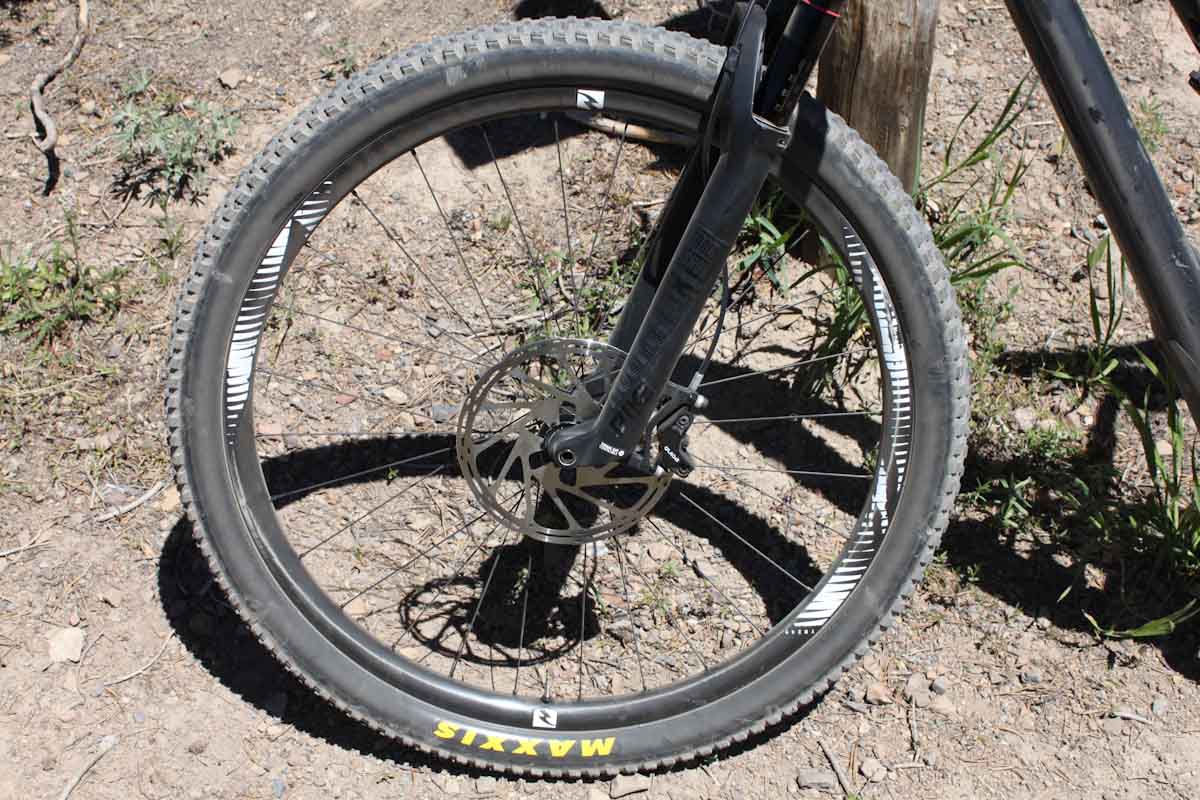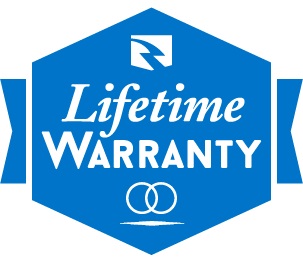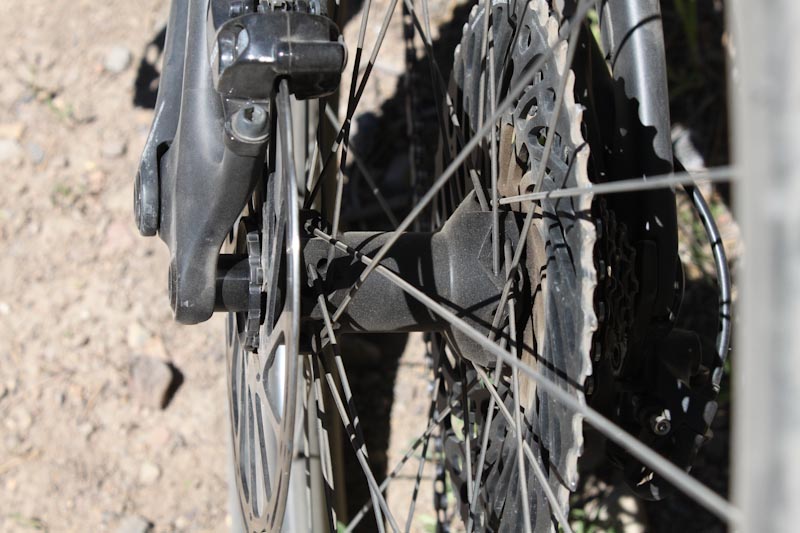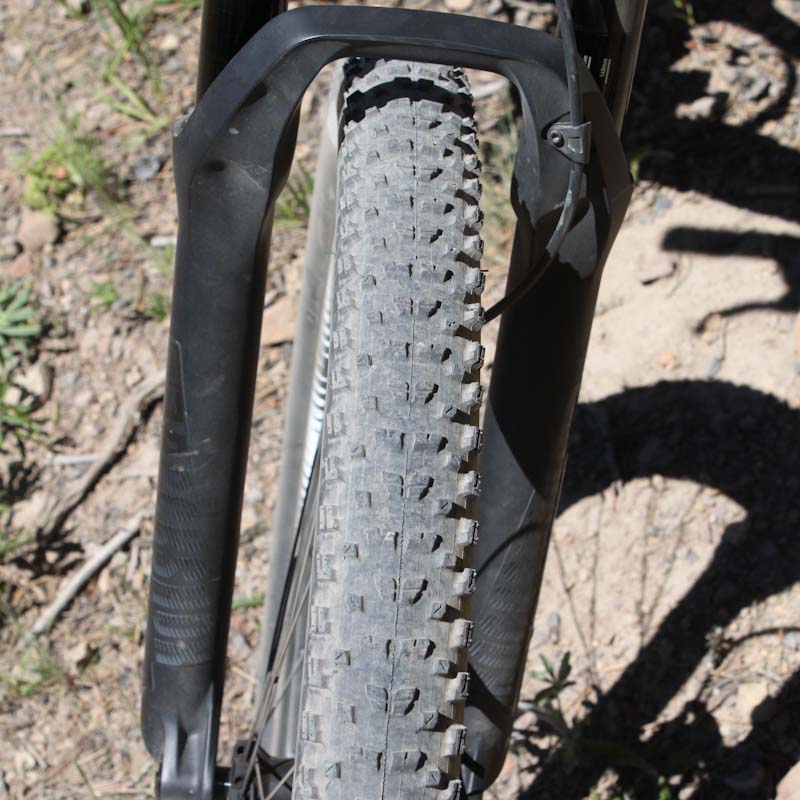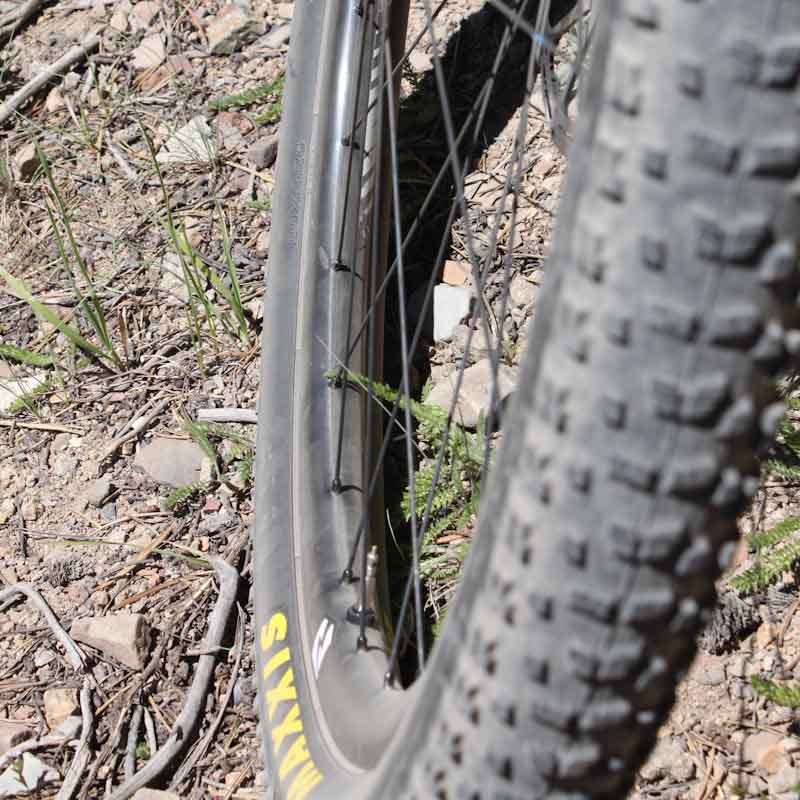If you’re still nervous about the idea of running carbon off-road, Reynolds wants you to rest easy that their wheelsets will handle a lifetime of thrashing. At the Impact Sun Valley media camp, Reynolds explained to us their no-worries warranty program, showed us some new wheels for MTB’s and E-MTB’s, and gave us a chance to take their TR249 29” wheelset for a spin.
So now let’s flesh out the warranty program details, then key specs on the new wheelset, plus a few thoughts on the TR249’s trail performance.
Reynolds warranty backed carbon trail bike wheels
As of about a year and a half ago, Reynolds has offered a complete lifetime warranty on all of their carbon wheelsets. They’ve even simplified their terminology to make their good intentions clear, as their website states:
“So quite simply, don’t worry, if you manage to break your wheel while you’re riding your bike, we’ll repair or replace it for free.”
That’s pretty broad warranty coverage, and extends to the original purchaser for life. So, unless you’ve taken a mallet to your rim in an attempt to abuse the policy, Reynolds makes it clear that they will gladly replace or repair any legitimately damaged carbon.
 If you’re not sold on the potential benefits you can get from upgrading your wheels, Reynolds also makes it easy for you to try one of their sets risk-free. Their 30-day guarantee is available through Reynolds dealers so riders can buy a wheelset, put it on their own bike for a proper test, and return them if they’re not happy with the performance.
If you’re not sold on the potential benefits you can get from upgrading your wheels, Reynolds also makes it easy for you to try one of their sets risk-free. Their 30-day guarantee is available through Reynolds dealers so riders can buy a wheelset, put it on their own bike for a proper test, and return them if they’re not happy with the performance.
Furthermore, for an extra fee customers can buy in to Reynolds’ Assurance Program, which extends coverage in case your wheels suffer damage while you’re not riding (eg. If you run over your bike in the driveway). There are 1, 2 & 3 year coverage options, so if your wheels suffer an unfortunate mishap within that time Reynolds will repair or replace them for free, ‘no questions asked’.
Now that’s a lot of talk about carbon wheel warranties, and this isn’t meant to turn into some advertorial article or anything. But as we see more and more carbon wheels pop up in our news feed (and into our office), it’s reassuring that for thousands of dollars buying a set of carbon wheels doesn’t have to be super risky. As mountain bikers, many of us can still be wary of bashing fancy carbon or rocks. But clearly some companies like Reynolds are confident that their composite wheels can stand up to the abuse, and they are willing to stand behind them. Now, with confidence behind off-road carbon rims, let’s check out a bit of an overview of the new TRE, TRS and TR wheelsets.
Reynolds TRE e-MTB wheelsets
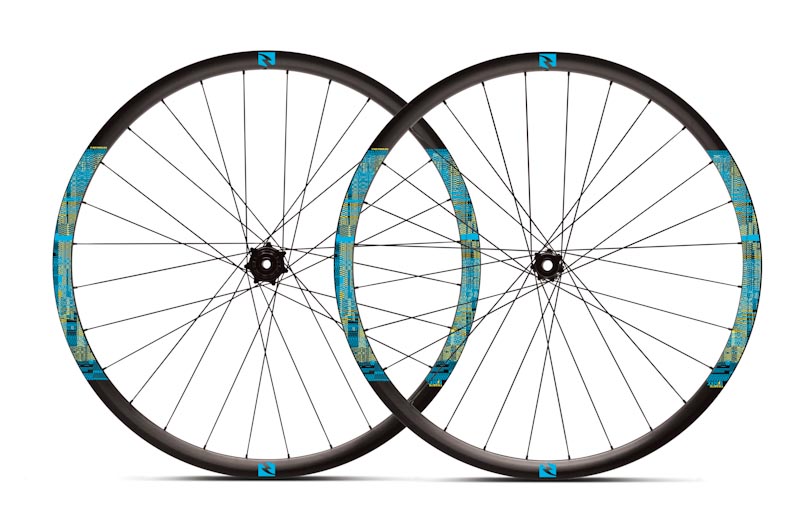 As the e-MTB market grows, Reynolds has developed a set of e-bike specific wheels called the TRE series (Trail Rated E-bike). The TRE wheels are built with Sapim E-Lite spokes with extra, thicker butting at the heads, and brass nipples joined to an asymmetrical rim. To handle the extra weight of electric bikes, the TRE wheels use 32 spokes front and rear.
As the e-MTB market grows, Reynolds has developed a set of e-bike specific wheels called the TRE series (Trail Rated E-bike). The TRE wheels are built with Sapim E-Lite spokes with extra, thicker butting at the heads, and brass nipples joined to an asymmetrical rim. To handle the extra weight of electric bikes, the TRE wheels use 32 spokes front and rear.
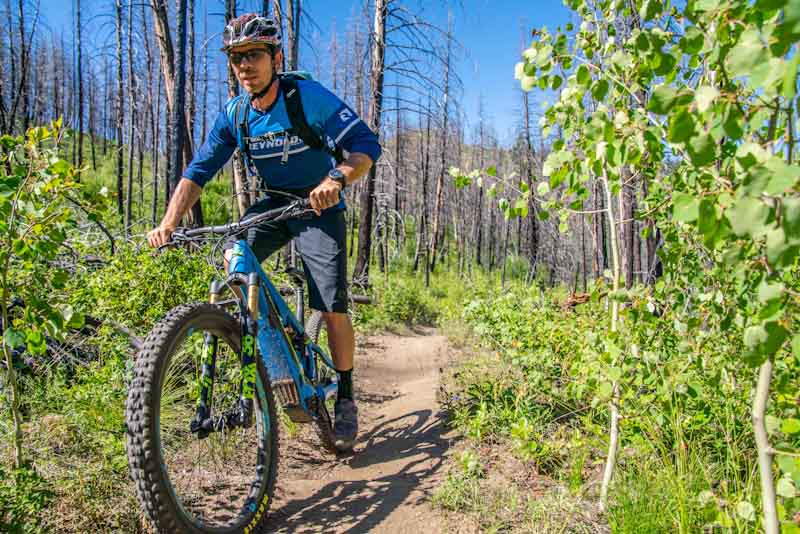
The TRE rear hub’s chromoly freehub body houses a reinforced ratchet ring that’s engaged by six pawls. They’re stacked five bearings across the rear axle to help endure the added mileage and torque inherent in electric-assist bikes.
There are three versions of the TRE wheelset: The TR307E features a 30mm inner width, 27.5” rim. The TR309E offers a 30mm rim for 29ers, and the TR367E is the widest 36mm, 27.5” option. All sets are Shimano or SRAM XD compatible. The TRE hubs are compatible with Centerlock brake rotors, and come Boost-spaced only (148 or 157mm rear). TRE wheels are currently only distributed as OEM components, but will be available to consumers in the future for $1550.
Reynolds TRS Wheelsets
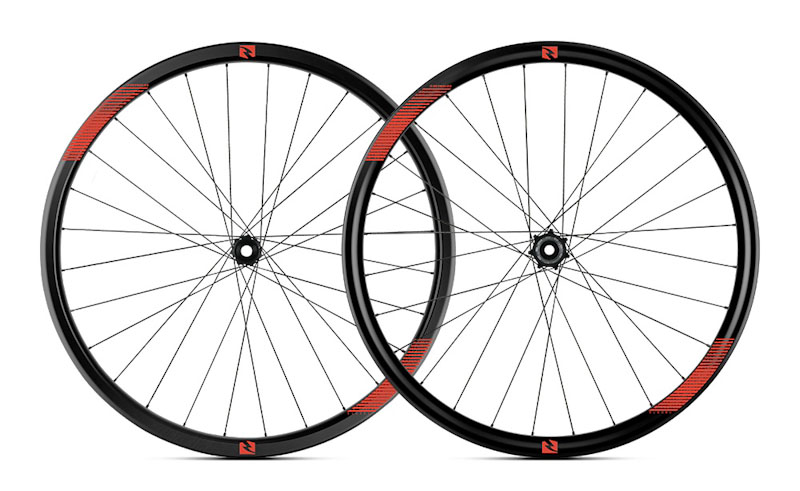
The TRS wheelsets feature the same ‘Trail Rated’ rims as the TRE E-bike wheels, but this line offers a narrower 24mm option for those running leaner treads on their 29er. There are four different wheelsets in the TRS line: The TR309S (30mm/29”), TR307S (30mm/27.5”), TR367S (36mm/27.5”) and the TR249S (24mm/29”).
The TRS wheels are built around Reynold’s CNC machined TR6 mountain hub, with six pawls that achieve a 5° engagement. Unlike the E-bike wheelset, this pair has a more typical, lighter 28 spoke setup front and rear. The MR5 mountain rims are tubeless ready, with a hookless rim profile for easy yet solid mounting.
The TRS wheelsets are available in Boost 110/148mm or non-Boost 100/142mm axle spacings, with Shimano or SRAM XD compatibility. The hubs accommodate Centerlock rotors, and since your wheels should look great on your bike decals come in five different colors so you can find a good match. All models again sell for $1550.
Reynolds TR Wheelsets
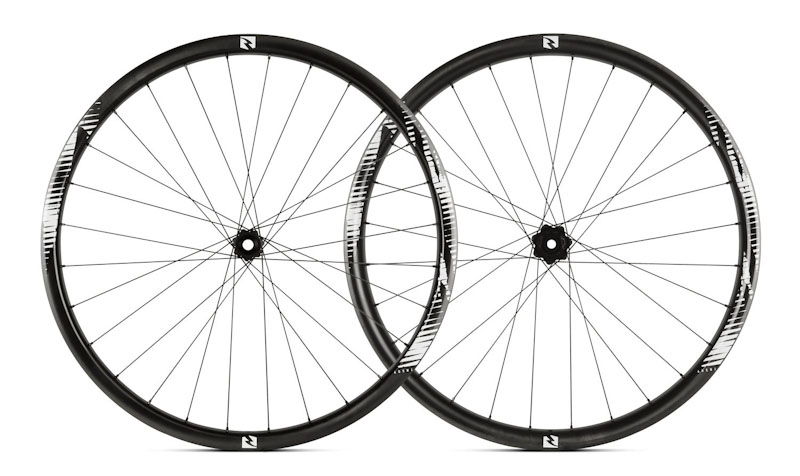
The TR wheels are Reynold’s entry level carbon wheel option, offering buyers the same lifetime guaranteed rims as the higher end sets at a lower price point. The TR wheelsets feature Reynolds same tubeless-ready MR5 carbon mountain rims, laced up to their TR3 mountain hubs. The TR3s have three pawls that provide 10° engagement, and fit Centerlock rotors. Again, with no motor driving one of the wheels this set uses 28 spokes front and rear.
There are four different TR wheelsets available, including TR307 (30mm/27.5”), TR309 (30mm/29”), TR249 (24mm/29”) and TR367 (36mm/27.5”). They can be purchased with either Boost 110/148mm or non-Boost 100/142mm axle spacings. All TR wheelsets retail for $1300, and the rim decals come in grey only.
Reynolds TR249 – One Short Ride Report
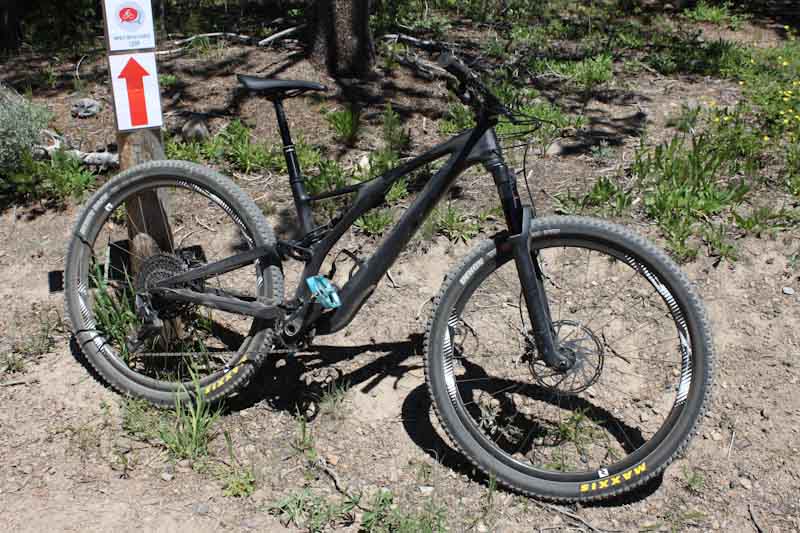 On day two of the Impact media camp, the crew headed over to Idaho’s Galena Lodge for some trail riding on the TR249 wheelsets. Specialized bikes set me up on a 2019 Stumpjumper 29er, and Reynolds popped on their wheels wrapped with Maxxis tires (including a brand new Rekon Race rear).
On day two of the Impact media camp, the crew headed over to Idaho’s Galena Lodge for some trail riding on the TR249 wheelsets. Specialized bikes set me up on a 2019 Stumpjumper 29er, and Reynolds popped on their wheels wrapped with Maxxis tires (including a brand new Rekon Race rear).
The 24mm wide rims were a good fit for the 2.25” tires we were riding. They spread the tread just right, creating an overall profile that rolled side-to-side predictably and provided plenty of cornering traction from the side lugs.
The first thing I noticed about the TR249 wheels was the low weight. At 1590g I felt like I jumped off the line with my first few pedal strokes, and that was with the most basic 10° engagement hub out back. I can only imagine the TRS wheels with the 5°, six-pawl TR6 hubs would feel even snappier, at least on the instant starts. The trail we rode was flowy with a few small jumps along the way, and the lack of weight was even noticeable in the air. The big wheeled Stumpy was popping off lips with ease, and it felt surprisingly nimble to whip around.
I normally ride 27.5” bikes, and I was impressed with how stiff the 29” TR249 wheels felt. The trail we rode had a lot of corners you could really lean into (especially where it crossed a gully back and forth) and despite railing my hardest I couldn’t produce any noticeable flex. The wheels also handled some squirrely landings on the unfamiliar jumps quite well, quickly snapping me back on line whenever I landed a bit sideways.
Given the short time we had for testing, I’m reluctant to get any more detailed about the wheels’ ride qualities at this point… Thankfully, Reynolds made me a tempting offer to ride one of their carbon wheelsets long-term, so there’s a good chance I’ll have a full writeup in the works soon.
